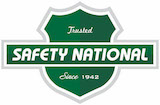A fire that started in a rural community in Northern California underscored a new reality in the state when days later it suddenly roared through neighborhoods on the edge of the city of Redding: Urban areas are increasingly vulnerable to wildfires.
In the last year, neighborhoods in the Northern California wine country city of Santa Rosa and the Southern California beach city of Ventura have been devastated.
Hotter weather attributed to climate change is drying out vegetation, creating more intense fires that spread quickly from rural areas to city subdivisions, climate and fire experts say. But they also blame municipalities that are expanding housing into previously undeveloped areas.
"There are just places were there should not be subdivisions," said Kurt Henke, a former fire chief in Sacramento who now serves as a consultant to fire organizations. "We're not talking about a single family who wants to build a house in the woods. I'm talking about subdivisions encroaching into the wild land urban interface that put them in the path of these destructive fires."
Henke wants more funding from the state legislature to deploy firefighters to areas where conditions are ripe for fast-moving fires, so they can be respond quickly if a blaze breaks out.












